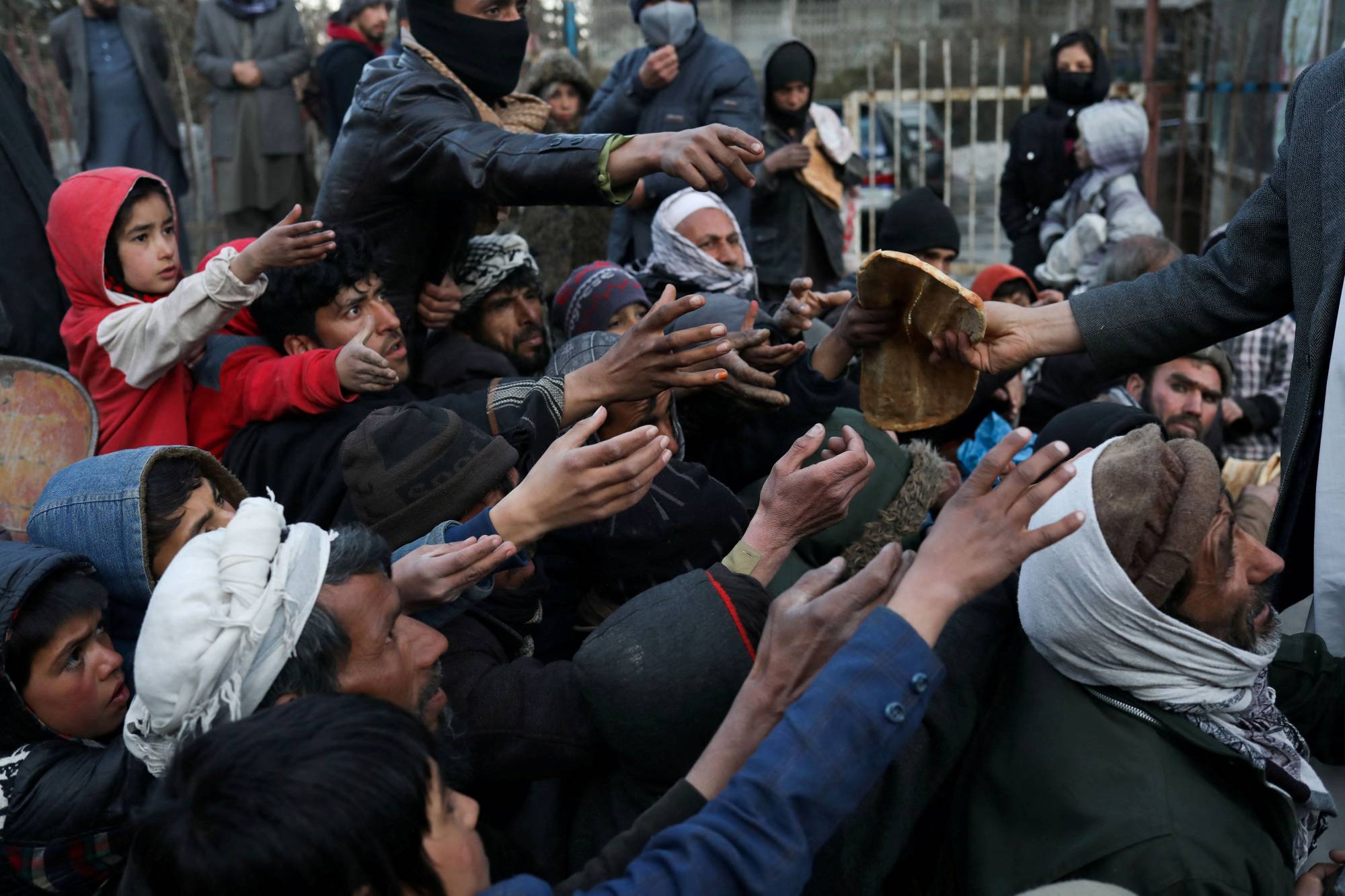Drought had already devastated Allawddin Rahimi’s wheat fields when the Taliban reached his village in northern Afghanistan. The group’s takeover left him with no choice but to flee.
"I wasn’t worried about the Taliban return as much as I was worried about the drought that dried up our only revenue and source of food,” Rahimi, 37, said from the port city of Bandar Abbas in neighboring Iran, where he arrived in November to search for a job. He now earns about $3.50 a day as a laborer on a construction site, which he sends home to support a family of seven in Afghanistan’s Balkh province.
As the planet warms, the worst dry spell in two decades has coincided with Afghanistan’s political and economic upheaval. Climate change is expected to have severe effects on the country over the coming decades, with the ousted Afghan government and the United Nations projecting extreme temperature rises of more than 6 degrees Celsius if global carbon emissions are left unchecked. Already one of the world’s poorest countries, its economy’s dislocation from billions of dollars in aid leaves Afghanistan more ill-equipped than ever to confront the challenges of global warming and reduced rainfall.



